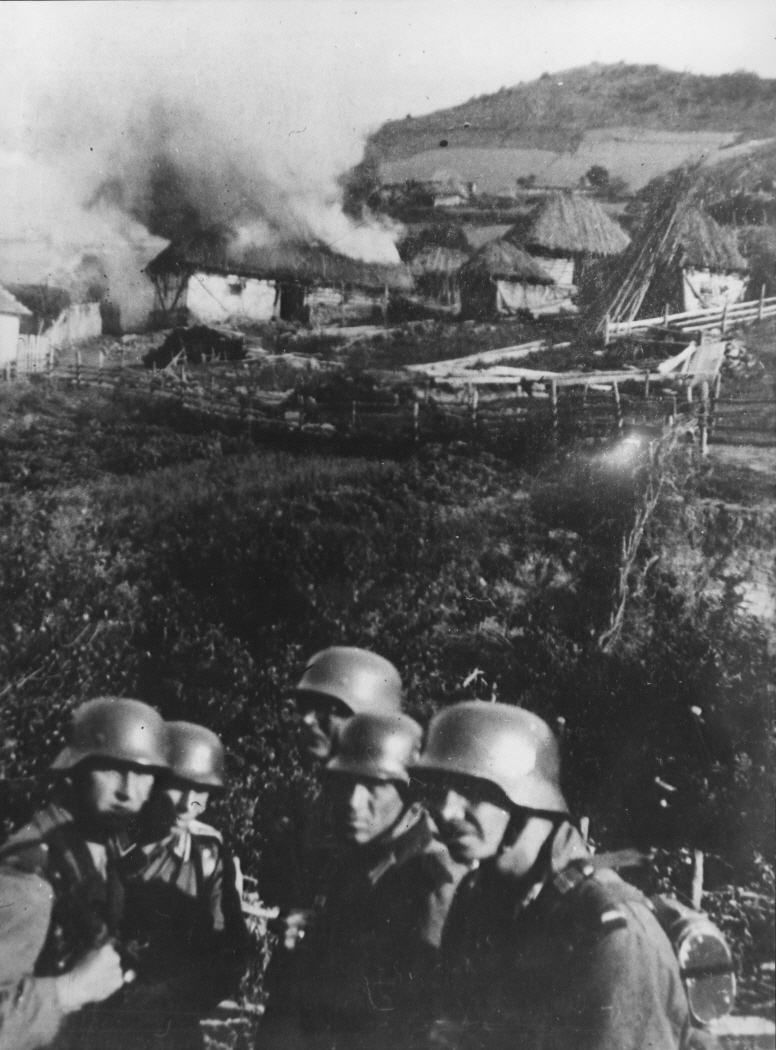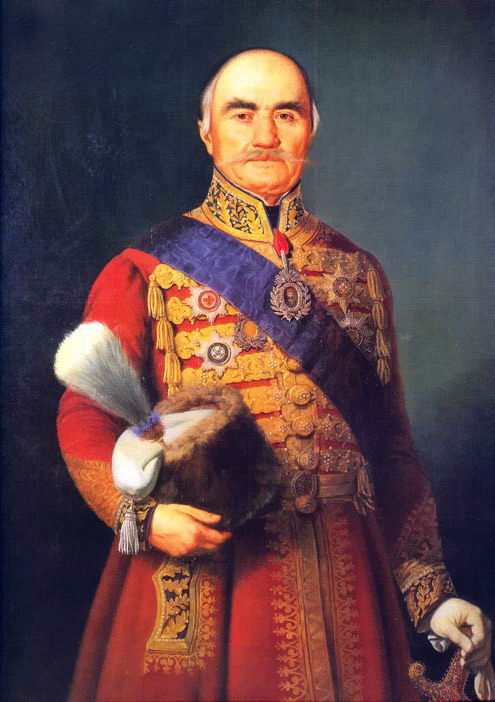|
Nenad Radosavljević
Nenad Radosavljević ( sr-cyr, Ненад Радосављевић; born 31 March 1961) is a Kosovo Serb politician, administrator, and media owner. He was a prominent figure in the Kosovo Serb community in the early years of the United Nations Interim Administration Mission in Kosovo (UNMIK) mandate. Early life and career Before entering political life, Radosavljević was director of the ironworks factory at Lešak in Leposavić and director general of the tools factory in Zvečan. Politician and administrator SNV leader, mayor, and parliamentarian (1999–2002) Radosavljević led the Leposavić branch of the Serbian National Council of Kosovo and Metohija, Serbian National Council (SNV) after the end of the Kosovo War (1998–99). He owned a radio station in northern Kosovo during this time, was active with the Liberals of Serbia, New Democracy (ND) party, and was a prominent local opponent of Slobodan Milošević's government. Relations between Kosovo's majority Albanian and m ... [...More Info...] [...Related Items...] OR: [Wikipedia] [Google] [Baidu] |
Kosovo Serb
Kosovo Serbs form the largest ethnic minority group in Kosovo (5–6%). The precise number of Kosovo Serbs is difficult to determine as they have boycotted national censuses. However, it is estimated that there are about 95,000 of them, nearly half of whom live in North Kosovo. Other Serbian enclaves in Kosovo, Kosovo Serb communities live in the Southern municipalities of Kosovo. The medieval Kingdom of Serbia (medieval), Kingdom of Serbia (1217–1346) and the Serbian Empire (1346–1371) included parts of the territory of Kosovo until its annexation by the Ottomans following the Battle of Kosovo (1389), considered one of the most notable events of Serbian history. Afterwards, it was a part of the Serbian Despotate. Modern Serbian historiography considers Kosovo in this period to be the political, religious and cultural core of the Medieval Serbia, medieval Serbian state. In the History of the Balkans#Late Middle Ages, Ottoman period (1455–1913), the situation of the Serb p ... [...More Info...] [...Related Items...] OR: [Wikipedia] [Google] [Baidu] |
Vojislav Koštunica
Vojislav Koštunica ( sr-cyrl, Војислав Коштуница, ; born 24 March 1944) is a Serbian former politician who served as the last President of Serbia and Montenegro, president of FR Yugoslavia from 2000 to 2003 and as the Prime Minister of Serbia, prime minister of Serbia from 2004 to 2008. Koštunica won the 2000 Yugoslav general election, 2000 Yugoslav presidential election as a candidate of a broad alliance Democratic Opposition of Serbia (DOS), which led to Bulldozer Revolution, overthrow of Slobodan Milošević and the withdrawal of Sanctions against Yugoslavia, international sanctions against Serbia and Montenegro, Yugoslavia. He strictly opposed cooperation with the International Criminal Tribunal for the former Yugoslavia (ICTY) and his party left the coalition government in protest at the decision to extradite Slobodan Milošević to the ICTY. After the 2003 Serbian parliamentary election, the first elections after the dissolution of DOS and Assassination o ... [...More Info...] [...Related Items...] OR: [Wikipedia] [Google] [Baidu] |
Serbian Renewal Movement
The Serbian Renewal Movement (, abbr. SPO) is a liberal and monarchist political party in Serbia. It was founded in 1990 by writer Vuk Drašković, who served as the party's president until 2024. Aleksandar Cvetković is the incumbent leader. History Formation Vuk Drašković was a writer for most of his life and he particularly became known in the 1980s due to his nationalist-themed books. He formed the Saint Sava Association in 1989 with Mirko Jović, Vojislav Šešelj, and Veljko Guberina, which sought to promote nationalism in Vojvodina. This association became a political party named Serbian National Renewal (SNO) in January 1990. Jović became the president of SNO and Drašković served along with as one of the vice-presidents of the party. As the chief ideologist of SNO, Drašković drafted its plan on expanding Serbia's borders which were based on historical and ethnic borders of the Serbs. Alongside this, SNO also advocated for the restoration of the monar ... [...More Info...] [...Related Items...] OR: [Wikipedia] [Google] [Baidu] |
Electoral List
An electoral list is a grouping of candidates for election, usually found in proportional or mixed electoral systems, but also in some plurality electoral systems. An electoral list can be registered by a political party (a party list) or can constitute a group of independent candidates. Lists can be open, in which case electors have some influence over the ranking of the winning candidates, or closed, in which case the order of candidates is fixed at the registration of the list. Electoral lists are required for party-list proportional representation systems. An electoral list is made according to the applying nomination rules and election rules. Depending on the type of election, a political party, a general assembly, or a board meeting, may elect or appoint a nominating committee that will add, and if required, prioritize list-candidates according to their preferences. Qualification, popularity, gender, age, geography, and occupation are preferences that may influence t ... [...More Info...] [...Related Items...] OR: [Wikipedia] [Google] [Baidu] |
2007 Serbian Parliamentary Election
Parliamentary elections were held in Serbia on 21 January 2007 to elect members of the National Assembly of Serbia, National Assembly. The first session of the new National Assembly of the Republic of Serbia was held on 14 February 2007. The elections enabled the coalition of DS; DSS & G17+ to continue. Electoral system The d'Hondt method was used to distribute parliamentary mandates following the election. Parties and coalitions had 10 days following the announcement of the final results to decide which candidates will take their allotted seats in parliament. Parties then had three months to negotiate a government. Parties registering as ethnic minority parties (options 8, 10, 14, 17, 19 and 20) did not need to surpass the 5% threshold to gain seats in the parliament, but instead needed to pass a natural threshold at 0.4%. For the first time in a decade, Albanians in Serbia, Albanian parties from the Preševo Valley participated in the elections, but Albanians in Kosovo, Kosovo ... [...More Info...] [...Related Items...] OR: [Wikipedia] [Google] [Baidu] |
Prime Minister Of Serbia
The prime minister of Serbia ( sr-Cyrl, премијер Србије, premijer Srbije; feminine gender, feminine: премијерка/premijerka), officially the president of the Government of the Republic of Serbia ( sr-Cyrl, председник Владе Републике Србије, predsednik Vlade Republike Srbije; feminine: председница/predsednica) is the head of the government of Serbia. The role of the prime minister is to direct the work of the government, and submits to the National Assembly (Serbia), National Assembly the Government policy statement, government's program, including a list of proposed Minister (government), ministers. The resignation of the prime minister results in the dismissal of the government. The first officeholder was Matija Nenadović, who became prime minister on 27 August 1805. The current prime minister, Đuro Macut was nominated by the President of Serbia, president of the Republic, Aleksandar Vučić, and elected and appoi ... [...More Info...] [...Related Items...] OR: [Wikipedia] [Google] [Baidu] |
Government Of Serbia
The government of Serbia ( sr-cyrl, Влада Србије, Vlada Srbije), formally the Government of the Republic of Serbia ( sr-cyrl, Влада Републике Србије, Vlada Republike Srbije), commonly abbreviated to Serbian Government ( sr-cyrl, Српска Влада, Srpska Vlada), is the executive branch of government in Serbia. The affairs of government are decided by the Cabinet of Ministers, which is led by the prime minister. The government is housed in the Government Building in Belgrade. Jurisdiction According to the Constitution of Serbia, the Government: * Determines and guides policy * Executes laws and other general acts of the National Assembly * Adopts regulations and other general acts for the purpose of enforcing laws * Proposes to the National Assembly the laws and other general acts and gives an opinion on them when submitted by another proposer * Directs and coordinates the work of public administration bodies and supervises their work * Perf ... [...More Info...] [...Related Items...] OR: [Wikipedia] [Google] [Baidu] |
Oliver Ivanović
Oliver Ivanović ( sr-cyr, Оливер Ивановић; 1 April 1953 – 16 January 2018) was a Kosovo Serb politician. Ivanović served as the State Secretary of the Ministry for Kosovo and Metohija from 2008 to 2012 and was also a member of the Coordination Center for Kosovo and Metohija from 2001 to 2008. He was assassinated by unknown perpetrators on 16 January 2018 in North Mitrovica. Early life and career Ivanović was born in Rznić, a village near Dečani in the west of SAP Kosovo, FPR Yugoslavia (now Kosovo), on 1 April 1953. His father, Bogdan, was a history professor, and his mother, Olga, was a professor of Serbian language and literature. He also had a brother, Miroslav, and a sister, Nataša. His paternal heritage was Montenegrin. He attended primary and secondary mechanical-technical school in Kosovska Mitrovica. After turning 18, he joined the League of Communists of Yugoslavia in 1971. Ivanović enrolled in the Zagreb Military Academy to become a pilot. Dur ... [...More Info...] [...Related Items...] OR: [Wikipedia] [Google] [Baidu] |
March 2004 Unrest In Kosovo
On 17–18 March 2004, violence erupted in Kosovo, leaving hundreds wounded and at least 19 people dead. The unrest was precipitated by unsubstantiated reports in the Kosovo Albanian media which claimed that three Kosovo Albanian boys had drowned after being chased into the Ibar River by a group of Kosovo Serbs. UN peacekeepers and NATO troops scrambled to contain a gun battle between Serbs and Albanians in the partitioned town of Mitrovica, Kosovo before the violence spread to other parts of Kosovo. Kosovo Serb communities and cultural heritage were attacked by crowds of Albanians. Serbs call the event the March Pogrom (), while the Albanians call it the March Unrest (). The violence resulted in the displacement of more than 4,000 Kosovo Serbs and other minorities. More than 935 houses, along with 35 Serbian Orthodox churches, monasteries and other religious buildings were destroyed. International and domestic courts in Pristina have prosecuted people who have taken part in th ... [...More Info...] [...Related Items...] OR: [Wikipedia] [Google] [Baidu] |
2002 Kosovan Local Elections
Local elections were held throughout Kosovo on 26 October 2002, organized by the Organization for Security and Co-operation in Europe (OSCE) and the United Nations Interim Administration Mission in Kosovo (UNMIK). This was the second local electoral cycle held in Kosovo after the start of the UNMIK mandate in 1999. In each municipality, elections were held for municipal assemblies under a system of proportional representation. The elected representatives in each jurisdiction were responsible for choosing an assembly president, who held the rank of mayor. (Beginning with the next local electoral cycle in 2007, mayors were directly elected.) The Serb community, which had generally boycotted the last round of local voting in 2000, participated in the vote in five predominantly Serb municipalities: Zubin Potok, Zvečan, Leposavić, Novo Brdo, and Štrpce. In northern Kosovska Mitrovica, Serbs generally abstained from voting. Milan Ivanović, the leader of the Serbian National Coun ... [...More Info...] [...Related Items...] OR: [Wikipedia] [Google] [Baidu] |
Michael Steiner
Michael Steiner (born 28 November 1949) is a German diplomat who served as head of the United Nations Mission in Kosovo (UNMIK). He was the German Ambassador to India from March 2012 to June 2015. Early life and education Michael Steiner was born on 28 November 1949 in Munich, Bavaria, Germany. Steiner studied law in Paris and Munich from 1971 to 1977 and qualified as a judge in 1981. Career In 1981, Steiner entered the German Foreign Office. As a young political officer in Prague in the summer of 1989, he won plaudits for his handling of a refugee crisis that helped lead to the fall of the Berlin Wall. As hundreds of East Germans surrounded his embassy grounds, asking for asylum and West German citizenship, he helped some of them over the wall himself, onto the embassy grounds, which were West German territory. Then he worked to negotiate a deal to allow the East Germans to leave the embassy and go to the West. During his career with the German government, Steiner served ... [...More Info...] [...Related Items...] OR: [Wikipedia] [Google] [Baidu] |




